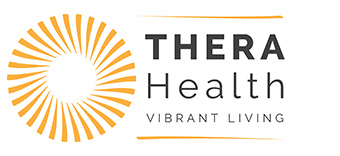Have you ever wondered why people associate love with the heart? After all, the heart is a hard-working biological pump, not a source of emotional feelings. If the heart isn’t responsible for love, what makes it so important?
Plenty. The heart is the centre of our circulatory system, which supplies the entire body with blood, oxygen, and nutrients through a complex series of veins and arteries. On average, the human heart beats approximately 100,000 times every single day. That’s a lot of responsibility for a single organ, but a healthy heart is up to the challenge.
Since the heart plays such a vital role in the body, it’s very important to keep it healthy. Unfortunately, we can’t change some of the things that affect heart health, including age, family history, and medical history. This makes it especially important to improve heart-related lifestyle factors that we can control, such as getting enough exercise, eating a well-balanced diet, and filling nutritional gaps with heart-healthy supplements.
KEEP MOVING
Exercising is one of the best ways to support a healthy heart. Regular aerobic exercise can help keep the heart muscle strong, manage body weight, and aid in preventing the damaging effects of high blood pressure and cholesterol. Surprisingly, it doesn’t take much exercise to make a big difference.
Just 30 minutes of aerobic activity, five times a week (150 minutes total per week) is a significant step towards keeping the heart healthy and beating strong. Some simple ways to add exercise to your daily routine include walking more often, jogging or running, taking the stairs instead of the elevator, biking around the block, or taking up swimming. While moderate to high-intensity exercises such as resistance training and weightlifting are also good for the heart, the real goal is to find an exercise routine you are comfortable performing on a consistent basis. Find an active exercise you like and stick with it!
STAND UP FOR A HEALTHY HEART
Sitting for prolonged periods can take a serious toll on your heart. Sedentary time—which includes working at a computer, driving, watching TV, reading, and sitting down for meals—slows metabolism and reduces the body’s ability to burn fat and regulate blood pressure. Fortunately, it doesn’t take a lot of effort to help minimise these adverse effects.
Even light-intensity activities like casual walking or simply standing up at regular intervals throughout the day can help offset some of the risks associated with sitting down for long spans of time.
EAT WITH YOUR HEART IN MIND
When it’s time to decide what to eat, do your heart a favour and seek out a well-balanced diet with plenty of vegetables, fruits, whole grains, and low-fat proteins. Vegetables and fruits deliver heart-healthy vitamins, minerals, and dietary fibre to the body, and eating more of them may help you reduce the amount of higher-calorie foods you consume like cheese, fatty meats, and processed snacks.
Whole grains like quinoa, buckwheat, and barley are excellent sources of dietary fibre that can help regulate blood pressure to support a healthy heart. When picking out a protein to eat, choose lean, low-fat meats and dairy products, poultry, and eggs instead of fatty meats loaded with an excessive amount of unhealthy saturated and trans fats. It’s also a good idea to limit the amount of sodium in your diet by avoiding overly processed foods and added salt to help reduce the risk of high blood pressure.
FILL NUTRITIONAL GAPS WITH SUPPLEMENTS

In addition to a well-balanced diet, dietary supplements are convenient and effective ways to help support a healthy heart by filling nutritional gaps. There are two nutrients that are particularly vital to heart health—coenzyme Q10 (a.k.a. CoQ10) and omega-3 fatty acids.
CoQ10 is a vitamin-like nutrient that helps your cells generate the energy needed to carry out some of your body’s most critical functions. If you think of your cells’ mitochondria as a tiny engine, you can think of CoQ10 as the fuel that powers them. CoQ10 is most highly concentrated in your heart, brain, kidneys, and liver—organs with high-energy requirements. CoQ10 also acts as an antioxidant, helping to neutralize the free radicals that can damage cells.
Healthy omega-3 fats are very important to heart health.
Structurally speaking, the omega-3 fats EPA and DHA make up part of our cell membranes, playing a key role in helping each and every one of our cells (including cells in the heart) to remain flexible and fluid enough to effectively absorb nutrients and expel wastes.
The omega-3 fatty acids EPA and DHA also help modulate both systolic and diastolic (upper and lower numbers) blood pressure. Numerous studies have found that omega-3s EPA and DHA help to lower triglyceride levels and support healthy heart rhythms. The bottom line? Omega-3s EPA and DHA are essential for helping maintain optimal heart function. So, make sure your diet contains enough of these healthy fats.
SHOW YOUR HEART SOME LOVE
Even though we know the heart isn’t technically responsible for emotions like love and care, I think we can all agree the heart deserves to be cared for. Keeping your heart healthy is an effective way to help ensure optimal wellness throughout life. Show your heart some love, and it will love you back for a lifetime.
ROB HUGHES
COPYWRITER
Rob is a copywriter at Nordic Naturals. When he isn’t writing to natural products customers about the health benefits of omega-3s and other essential nutrients, Rob likes to explore the beaches and redwood groves of the Santa Cruz area with his wife and their dog. Thanks to his background in both astronomy and geology, he finds stars and rocks equally fascinating.








Leave a Reply
Want to join the discussion?Feel free to contribute!